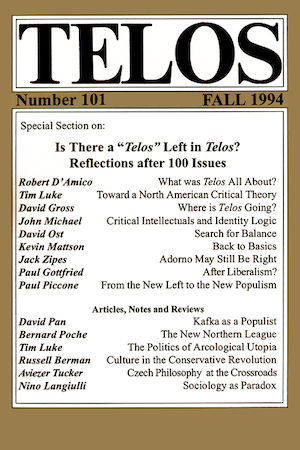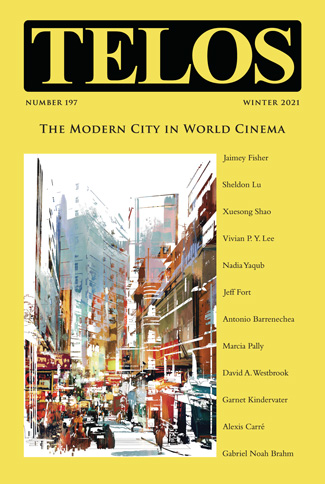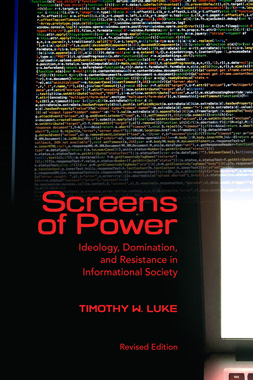By Telos Press · Monday, October 30, 2023  In sorrow, the Telos-Paul Piccone Institute, in cooperation with the journal Telos, announces a series of events and publications designed to explore the place of critical theory in the response within the American university to the atrocities perpetrated by Hamas on October 7, 2023. In sorrow, the Telos-Paul Piccone Institute, in cooperation with the journal Telos, announces a series of events and publications designed to explore the place of critical theory in the response within the American university to the atrocities perpetrated by Hamas on October 7, 2023.
From the start of this war, theory was present. It was present in sublimated ways, as widespread presuppositions and “narratives,” infused with charismatic authority by a popularized “postcolonial” jargon. It was present in kinetic, emotionally charged, intellectually unsophisticated responses in “mass” demonstrations, public statements by groups and institutions, and individual social media campaigns. Yet above all, it was manifest in considered, open, intentional ways, within our universities. The American college campus, the traditional home of critical theory—which emerged in the twentieth century most powerfully as a response to fascism and Nazism—has become a nodal point for the dramatic unfolding of a morally and politically deficient discourse about a present-day Kristallnacht.
What can this state of affairs tell us about American higher education? What does it reveal about the fate of “theory” itself, in concrete, practical, and abstract theoretical terms? How does the ritual deployment of certain theoretical vocabularies in response to the attacks help obscure the interests and power of the New Class of managers, information workers, social engineers, and therapeutic organizers, against which Telos has launched a sustained critique since 1968? What does it signify that many members of this powerful strata have learned to conceive of justice and injustice in terms of reified castes in a hierarchy of victimhood, such that racial, ethnic, national, religious, sexual, or gender identity are largely equated with individual moral culpability or innocence? How have theories critical of symbolic violence turned into justifications for actual violence? And how is this justification of actual violence “by any means necessary” emancipated from any ethical constraints? How do macro-level geopolitical concerns provide a larger context for understanding the place of critical theory in the response to October 7?
Continue reading →
By Florindo Volpacchio · Wednesday, December 28, 2022 If a journal manages to survive for 100 issues, it is reasonable to assume that the editorial board has managed to reach some sort of internal consensus and can finally rest on its laurels. Such is not the case with Telos. . . . After all these years, nothing seems to be settled and [Telos] remains a hopelessly heterogeneous group still trying to come to some agreement concerning many crucial and not-so-crucial issues. . . . This is why this theoretical bellum omnium contra omnes may be interpreted as evidence of lingering internal vitality, an unwillingness to take anything for granted, and a suspicion of all positions even faintly resembling conformism and passivity.
 With those words from Telos 101 (Fall 1994), Paul Piccone launched his critique of those who felt Telos had lost its direction and had settled into the role of the cranky old uncle of intellectual journals. Having just celebrated its 200th issue in its 54th year, those words still speak to the current state of the intellectual project he launched back in 1968. With those words from Telos 101 (Fall 1994), Paul Piccone launched his critique of those who felt Telos had lost its direction and had settled into the role of the cranky old uncle of intellectual journals. Having just celebrated its 200th issue in its 54th year, those words still speak to the current state of the intellectual project he launched back in 1968.
Piccone’s critique of his critics, “From the New Left to the New Populism,” was intended not to lay claim to any settled doctrine for Telos but to demonstrate the journal’s ability to constantly rethink its position among current debates along the entire ideological spectrum. While the bellum omnium contra omnes Piccone refers to in his article specifically refers to Telos‘s own family, I think it is more than fair to say it was applied to any and all who asserted a suspicious and artificial ground for emancipation. Toward this end, Piccone begins by providing his own critique of the Western Marxist tradition out of which Telos arose. This in itself, in its pure compactness, is a tour de force of intellectual history and should be read by all those who seek an origin story, or who simply need to have their revision revised.
Continue reading →
By Telos Press · Tuesday, January 18, 2022 The second Telos Student Seminar will pair an essay by Huimin Jin, “Cultural Self-Confidence and Constellated Community: An Extended Discussion of Some Speeches by Xi Jinping” (Telos 195, Summer 2021, pp. 93–113), with an excerpt from Cornelius Castoriadis, “The Crisis of Western Societies” (Telos 53, Fall 1982, pp. 17–28). Our virtual gathering will feature Prof. Jin, who will be joining us from China, as well as a scholar representing the views of Castoriadis.
Modeled on the study groups from which Telos first grew, yet reconceived for the digital age, the Telos Student Seminars (TSS) provide a forum for students around the world to engage with critical theory by discussing a common set of paired texts from Telos—one current essay, and one pertinent essay from our archives—to connect the past and present of the journal to its future. TSS also provides an opportunity for students to be published on TELOSscope.
We seek teachers and scholars from around the world under whose aegis TSS groups can meet and who can provide students with intellectual encouragement and support. An institutional library subscription is necessary. Would you like to join us? Contact tss@telospress.com.
For more information about the Telos Student Seminars, click here.
Continue reading →
By Jaimey Fisher and Sheldon Lu · Wednesday, December 15, 2021 Telos 197 (Winter 2021): The Modern City in World Cinema, edited by Jaimey Fisher and Sheldon Lu, is now available for purchase in our store. Individual subscriptions to Telos are also available in both print and online formats.
 The theme of this special issue of Telos is the modern city in world cinema. Its various essays examine the depiction of cities and their constitutive contexts through the lens of critical theory, political theory, cultural theory, and film theory. The contributors tackle a range of topics: the experience of modernity in urban contexts; cities in relation to civil society and the public sphere; the metropolis and cosmopolitanism; the urban/rural divide; cities and gendered, racial, and class divides; urban planning and urban space; film as a particular medium, with specific parameters, in the broader age of media; film as mass entertainment and as revolutionary propaganda. Even with this wide range of topics and their themes, there are many more to be explored, herein and elsewhere, so complex and rich are the relations of the urban to the cinematic. The theme of this special issue of Telos is the modern city in world cinema. Its various essays examine the depiction of cities and their constitutive contexts through the lens of critical theory, political theory, cultural theory, and film theory. The contributors tackle a range of topics: the experience of modernity in urban contexts; cities in relation to civil society and the public sphere; the metropolis and cosmopolitanism; the urban/rural divide; cities and gendered, racial, and class divides; urban planning and urban space; film as a particular medium, with specific parameters, in the broader age of media; film as mass entertainment and as revolutionary propaganda. Even with this wide range of topics and their themes, there are many more to be explored, herein and elsewhere, so complex and rich are the relations of the urban to the cinematic.
Continue reading →
By David Pan and Mark S. Weiner · Monday, September 13, 2021 In anticipation of our two-hundredth issue, the editorial board of Telos is organizing an exciting new international initiative: the Telos Student Seminars (TSS). We are reaching out to you as a valued friend of the journal in the hope that you will be a part of our efforts.
Modeled on the study groups from which Telos first grew, yet reconceived for the digital age, the Telos Student Seminars will provide a forum for students around the world to engage with critical theory by discussing a common set of paired texts from Telos—one current essay, and one pertinent essay from our archives—guided by questions drawn up by our student interns and our editorial board. These questions will seek to connect the past and present of the journal to its future.
We seek faculty from around the world under whose aegis TSS groups can meet and who can provide students with intellectual encouragement and support. These friends of Telos will be designated as our Seminar Conveners. We would be thrilled if you would serve in this special capacity. Conveners are responsible for ensuring that their institutions have a subscription to Telos and its backfile so that students can participate—they can do so by contacting their university librarians.
Continue reading →
By Telos Press · Wednesday, June 23, 2021 Writing in the current issue of New Political Science, Saladdin Ahmed reviews Timothy W. Luke’s Screens of Power: Ideology, Domination, and Resistance in Informational Society, recently published in a new edition by Telos Press. Purchase your copy of Screens of Power today in our online store and save 25% off the list price.
An excerpt of the review:
 Screens of Power first came out in 1989, a time that would turn out to be the most significant historical turn in global politics after World War II. The book’s author, Timothy W. Luke, offers a concrete account of the history of neoconservatism, grounding his claims in critical analyses of the production of signs, codes, and mass opinion that were at the time making evident their systematic role in the perpetuation of what would emerge as capitalist absolutism. Luke’s book offers a groundbreaking view of both the macro levels of social mobilization and micro processes of ideological hegemony under which corporate capitalist actors would eventually achieve this end. . . . About three decades later, the soundness of Luke’s analysis barely needs any defense. To be clear though, as an exemplary work of critical theory, Screens of Power did not engage in the business of prophecies and game of predictions. Instead, it had the ability to look directly into the actually existing, and one might say with hindsight, ever-growing abyss of capitalist absolutism. The book may have seemed pessimistic in 1989, but now it reads as a faithfully realistic analysis of the neoliberal age. Screens of Power first came out in 1989, a time that would turn out to be the most significant historical turn in global politics after World War II. The book’s author, Timothy W. Luke, offers a concrete account of the history of neoconservatism, grounding his claims in critical analyses of the production of signs, codes, and mass opinion that were at the time making evident their systematic role in the perpetuation of what would emerge as capitalist absolutism. Luke’s book offers a groundbreaking view of both the macro levels of social mobilization and micro processes of ideological hegemony under which corporate capitalist actors would eventually achieve this end. . . . About three decades later, the soundness of Luke’s analysis barely needs any defense. To be clear though, as an exemplary work of critical theory, Screens of Power did not engage in the business of prophecies and game of predictions. Instead, it had the ability to look directly into the actually existing, and one might say with hindsight, ever-growing abyss of capitalist absolutism. The book may have seemed pessimistic in 1989, but now it reads as a faithfully realistic analysis of the neoliberal age.
Continue reading →
|
|
 In sorrow, the Telos-Paul Piccone Institute, in cooperation with the journal Telos, announces a series of events and publications designed to explore the place of critical theory in the response within the American university to the atrocities perpetrated by Hamas on October 7, 2023.
In sorrow, the Telos-Paul Piccone Institute, in cooperation with the journal Telos, announces a series of events and publications designed to explore the place of critical theory in the response within the American university to the atrocities perpetrated by Hamas on October 7, 2023. 




